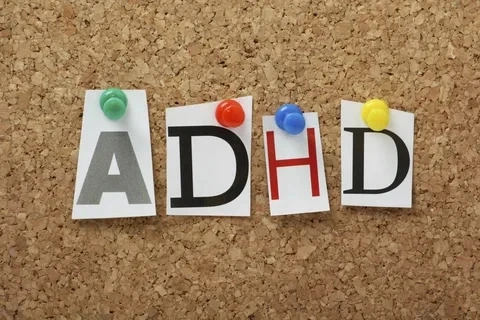In addition to affecting people in their day-to-day lives, attention deficit hyperactivity disorder (ADHD) also has a major effect on relationships. Whether in sexual relationships, friendships, or family ties, ADHD can offer special difficulties as well as chances for development. This essay will examine the dynamics of ADHD in relationships, the difficulties that families and couples may encounter, and solutions to these difficulties while highlighting the positive aspects that people with ADHD offer to their partnerships.
Relationships and ADHD: An Understanding
Relationships are affected by ADHD in a number of ways, including communication, organizing, controlling emotions, and handling conflict. Relationship dynamics where one or both spouses have ADHD often look like this:
Communication problems:
People with ADHD may find it difficult to stay focused during talks, listen intently, or keep their word. This can cause their partners to become frustrated and misunderstood.
Difficulties with organization and planning:
Impulsivity and forgetfulness, two symptoms of ADHD, can impact money management, domestic duties, and scheduling, leading to stress and conflict in relationships.
Emotional dysregulation:
People with ADHD are prone to strong feelings and mood swings, which can affect how they communicate with loved ones and partners.
Hyperfocus and distraction:
While people with ADHD may be hyperfocused on interesting projects or activities, they can also lose track of time or become easily distracted, which can cause them to ignore their relationships.
Various viewpoints on priorities and time:
People with ADHD frequently struggle with their sense of time and priorities, which can cause arguments over priorities and time management in relationships.
Difficulties with ADHD Relationships
Managing a relationship when one or both partners have ADHD can be difficult for a number of reasons, such as:
Communication breakdowns:
Misunderstandings and disagreements in communication can arise frequently when someone struggles to listen, stay focused, and articulate themselves.
Unfair responsibility distribution:
People with ADHD may have trouble handling money obligations, childcare responsibilities, or domestic chores, which can irritate and frustrate their partners.
Emotional dysregulation and impulsivity:
Emotional outbursts and impulsivity can strain relationships by causing misunderstandings, hurt feelings, and a lack of trust.
Neglect and inattention:
Neglect and inattention to details can result in missed appointments, neglected obligations, and feelings of abandonment from spouses.
Hyperfocus and neglect:
People with ADHD who are hyperfocused on particular activities or tasks may overlook their partners\' needs or spend too much time on hobbies or pastimes, which can leave them feeling abandoned or neglected.
Techniques for Overcoming Obstacles
Although ADHD can cause problems in relationships, families and couples can use the following tactics to successfully manage these challenges:
Learn about ADHD:
Acknowledging the signs, difficulties, and assets linked to ADHD can aid couples in cultivating patience, understanding, and kindness toward one another.
Enhance your communication abilities by using assertive communication strategies, active listening, and validation to increase understanding and decrease misconceptions.
Create structures and routines
To increase organization and lessen turmoil in the relationship, develop systems and routines for handling financial obligations, scheduling, and home chores.
Realistic expectations should be set for one another, with an emphasis on progress rather than perfection. Acknowledge the limitations and difficulties brought on by ADHD.
Seek professional assistance
To address marital issues, enhance communication, and create plans for managing ADHD in the relationship, think about attending family counseling or couples therapy.
As a team, identify your partner\'s strengths and limitations, assign tasks and responsibilities based on individual strengths, and provide mutual support in managing symptoms of ADHD.
Practice self-care:
To preserve emotional stability and resilience in the midst of relationship difficulties, give priority to stress-reduction strategies and self-care.
Honoring the Positive Aspects of Relationships with ADHD
Although ADHD poses particular difficulties in relationships, it also delivers advantages and traits that help strengthen bonds and intimacy:
Creativity and spontaneity:
People with ADHD frequently have an adventurous and creative outlook on life, which infuses their relationships with excitement and novelty.
Enthusiasm and passion:
People with ADHD are renowned for their ardor and passion, which can excite and contagious for their relationships.
Hyperfocus and dedication:
Although hyperfocus might present difficulties at times, it can also work to an individual\'s advantage when they direct their attention into their relationships, exhibiting commitment and dedication.
Resilience and sense of humor:
People with ADHD frequently possess a special sense of humor and resilience in the face of difficulties, which they use to lighten the mood in their relationships.
Deeper emotional connections can be fostered by people with ADHD who are highly sympathetic and sensitive to their partners\' needs and feelings, even in the face of difficulties with emotional control.
In summary
ADHD can cause problems in relationships, but families and couples can overcome these difficulties and forge enduring friendships if they have empathy, compassion, and good communication skills. Through acquiring knowledge about ADHD, creating coping mechanisms, and obtaining expert assistance when required, partners can surmount challenges and acknowledge the virtues that people with ADHD provide to their partnerships. In the end, relationships may survive and expand in the presence of ADHD if all parties involved have the necessary tolerance, compassion, and openness to learn and grow together.


